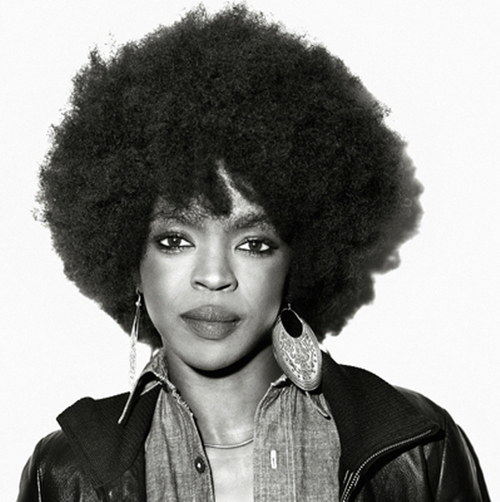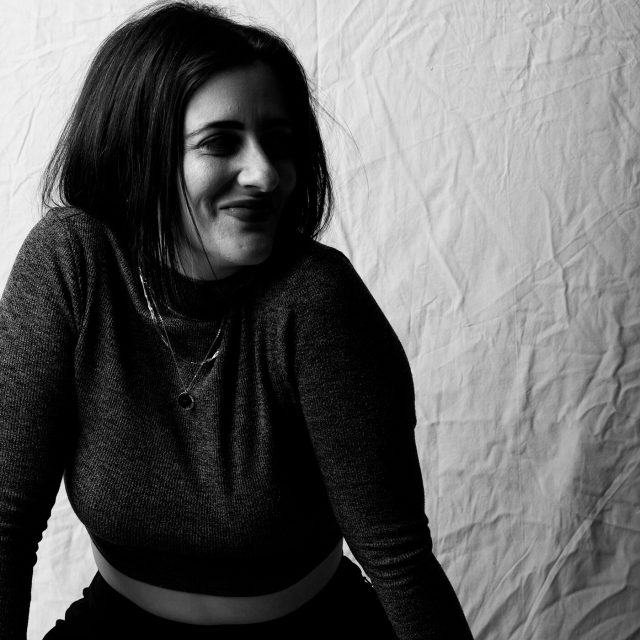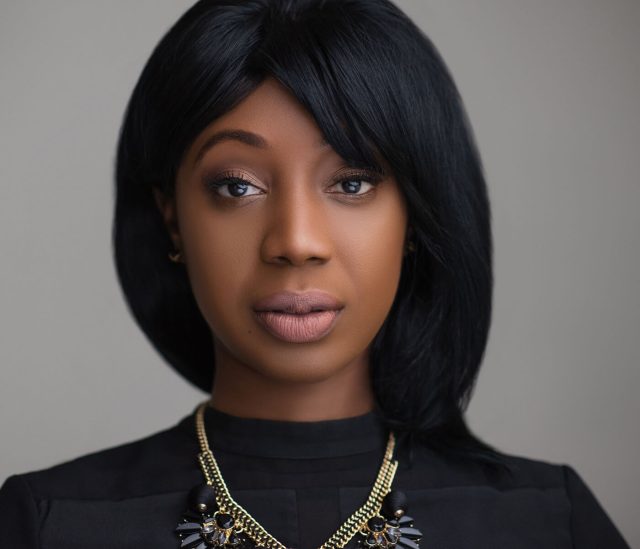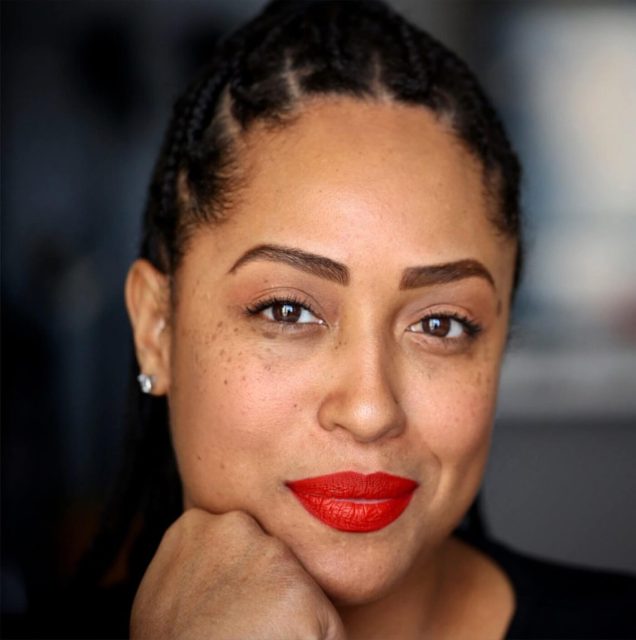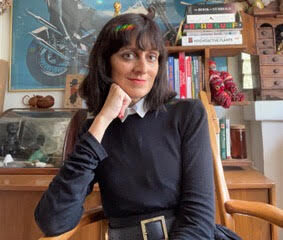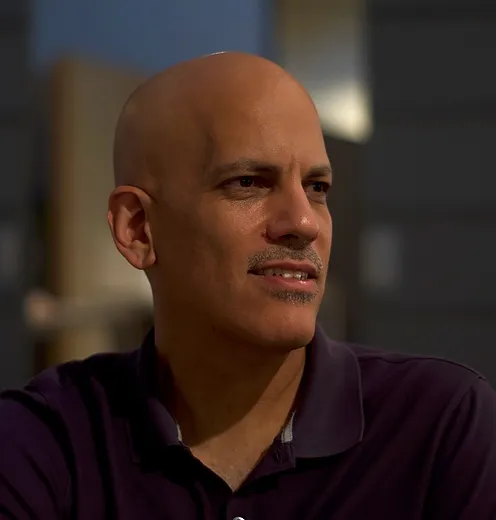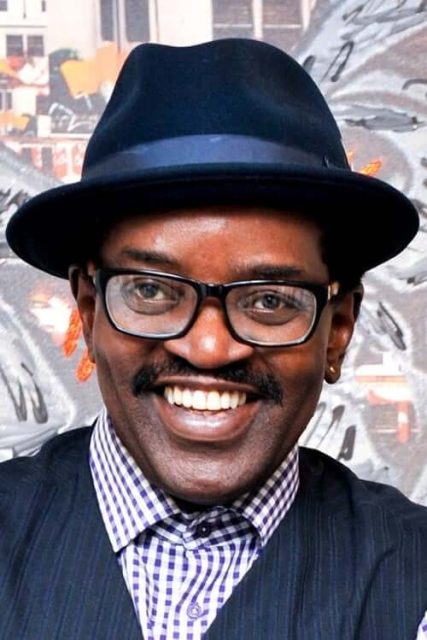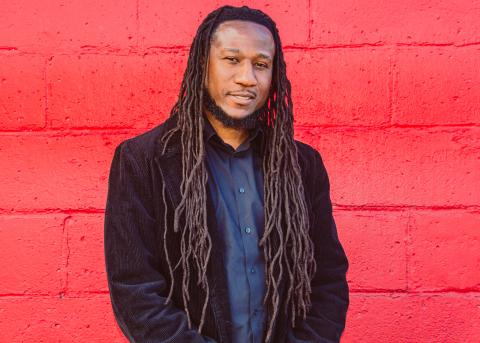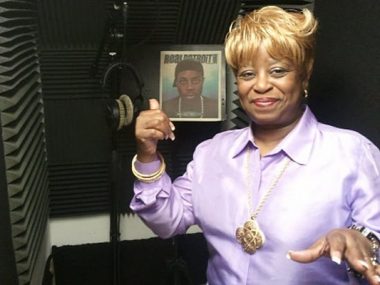Lauryn Noelle Hill was born in East Orange, New Jersey, and grew up in nearby South Orange. From an early age, Lauryn was fascinated by music. Her father, a computer consultant, and her mother, a teacher, were both musical, and her older brother, Malaney, played a number of instruments. The young Lauryn Hill enjoyed school, sports and other activities, but music was an exceptional passion. She spent hours on end listening to records in her room, absorbing the classic soul music of the ’60s and ’70s. She performed at every opportunity; at age 13 she appeared as a contestant on Showtime at the Apollo. With the support of her parents, she pursued singing and acting professionally in her early teens, appearing on local television and auditioning for film roles in nearby New York City.
In high school she met two young immigrants from Haiti, Pras Michel and Wyclef Jean, who invited her to join the hip hop group they were forming called the Fugees (short for refugees). Lauryn became one of the group’s songwriters, as well as a rapper and vocalist. The Fugees performed around the New York area while submitting demo recordings to the major record companies.
Lauryn Hill continued to pursue her acting career. At age 17, she played a recurring role on the daytime television drama As the World Turns. The following year, she appeared in a prominent singing role in the feature film Sister Act 2: Back in the Habit, starring Whoopi Goldberg. Hill’s performance in Sister Act 2 won considerable attention, and she followed it with roles in a number of films, including King of the Hill. She had not neglected her studies either, and earned admission to Columbia University. At first, she tried to balance her studies with her professional work, but in her freshman year, the Fugees signed a record contract and Lauryn Hill left university to concentrate on her performing career.
The first Fugees album, Blunted by Reality, was released in 1994. It attracted some positive reviews but failed to establish the group as a major presence on the hip hop scene. For their second album, they varied their sound, incorporating elements of reggae and old school R&B, and sharpened their lyrics as well, introducing more explicit social commentary than on their first outing. When it was released in 1996, The Score was an immediate sensation, winning rave reviews and shooting to the top of the Billboard 200 and the R&B charts. The album included three hit singles; the biggest was Lauryn Hill’s version of “Killing Me Softly with His Song,” a ballad made famous in the 1970s by singer Roberta Flack. The song went to Number 2 on the U.S. Singles chart (Number 1 in Britain), and brought the group a Grammy Award for Best R&B Performance of the Year. In its first year of release, The Scoresold six million copies. The Fugees were now one of the biggest acts on the scene, with a hectic touring schedule that put a strain on their collaboration and their friendship.
After a turbulent relationship with her bandmate Wyclef Jean, Lauryn Hill met and fell in love with Rohan Marley, son of reggae legend Bob Marley. While Hill and Marley were expecting their first child, she began writing songs for a solo album. After the birth of her son, Zion David, she went back to work producing and recording her solo debut, The Miseducation of Lauryn Hill. The music was even more varied than that of The Score, drawing on her love of old school soul and R&B, while her lyrics treated all the challenges that sudden fame posed for a young woman deeply committed to her own artistic and spiritual values.
Released in 1998, the album topped the Billboard 200 chart for four weeks, and the Billboard R&B Album charts for six weeks. Of the five singles released from the album, “Doo Wop (That Thing)” debuted at Number 1 on the Billboard charts. Miseducationreceived delirious reviews and sold 19 million copies. At the 1999 Grammy Awards, Hill broke a number of records, becoming the first woman to be nominated in ten categories in a single year, and the first woman to win five trophies in one night: Album of the Year, Best R&B Album, Best R&B Song, Best Female R&B Vocal Performance and Best New Artist. Magazines contended to put Lauryn Hill on their cover, and she was deluged with lucrative film offers, but she chose to concentrate on her music. By the end of 1999, two years into her solo career, her record sales and touring had earned her an estimated $25 million. In addition to her own performing schedule, she served as co-producer of Carlos Santana’s Supernatural, and won a second Grammy Award for Album of the Year. She is the only female artist to win the Album of the Year award in two consecutive years.
At the height of her success, Lauryn Hill surprised the music world with her decision to withdraw from performing and seclude herself with her growing family. She continued to write songs, and in 2001, she recorded a live performance of her new, more contemplative material for MTV, accompanying herself on acoustic guitar. The performance was broadcast the following year. The live recording was released as Unplugged No. 2.0. Although Unplugged received mixed reviews, it debuted at Number 3 on the Billboard charts, and sold over a million copies in the first four weeks.
In 2012, the IRS sued Lauryn Hill for back taxes. She pled guilty to three counts of tax evasion for failing to file income tax returns for the years 2005 through 2007, and agreed to pay a reported a $1.5 million in back taxes and penalties. Following this judgment, she resumed a more intense performing schedule, appearing with rapper Nas on the “Life Is Good/Black Rage” tour. In May 2013, she was sentenced to three months in prison and three months of home confinement with electronic monitoring. She was released from prison in Connecticut in October 2013, after serving slightly less than three months. Her time in prison was reduced based on a number of factors, including good behavior. On the eve of her return from prison, she released a new recording, “Consumerism,” which featured her characteristic high-speed rapping.
Over the years, Lauryn Hill has maintained homes in Florida and the Caribbean, while preserving close ties to her childhood home in New Jersey. A mother of six, she may continue to write and perform at her own pace, but she has long made it clear that she will always put family first.
Lauryn Hill
